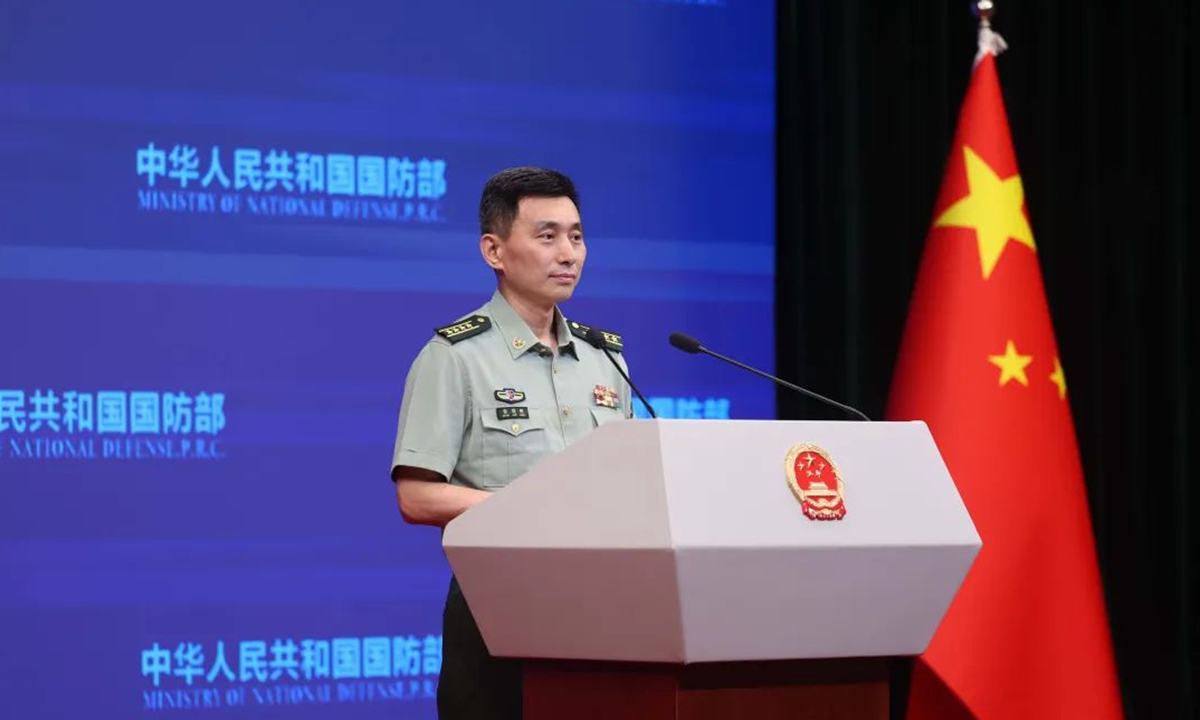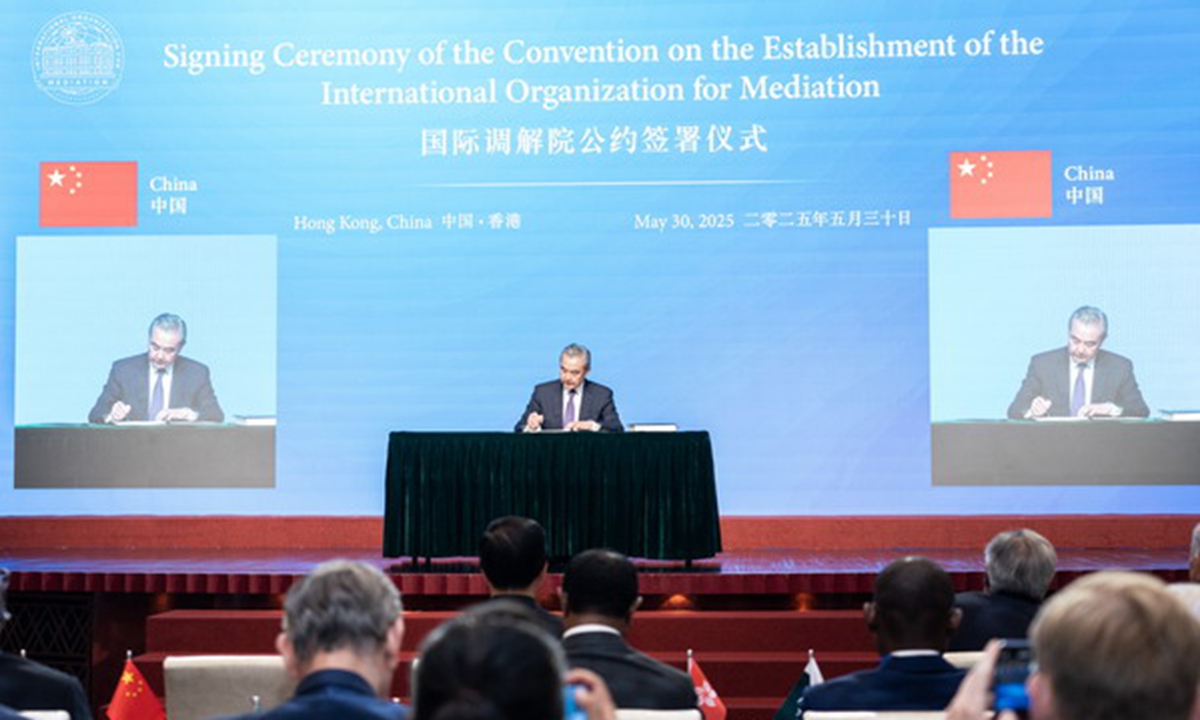;
Chinese expert rips into US Shangri-La speech, debunks 'China Threat' point by point

Zhang Xiaogang, a spokesperson for China's Ministry of National Defense Photo: Ministry of National Defense
In response to the negative comments by US defense secretary on China at the 22nd Shangri-La Dialogue, which exaggerated the "China threat" narrative, Zhang Xiaogang, a spokesperson for China's Ministry of National Defense, stated on Sunday that the US is accustomed to creating disputes, inciting confrontation, and pursuing selfish interests at the Shangri-La Dialogue. The remarks made by the US defense secretary were filled with deeply ingrained hegemonic logic, bullying behavior, and Cold War mentality. They seriously provoke China's sovereignty and interests, distort China's policy positions, and grossly disregard the joint efforts of regional countries to maintain prosperity and stability, Zhang said. This stance of the US is in serious deviation from the common aspiration of countries around the world for peace and development. We express strong dissatisfaction and resolute opposition to this, Zhang said, according to a statement released on the WeChat account of China's Ministry of National Defense on Sunday.
Zhang stated that the US's actions are evident to the international community. Driven by selfish interests, the US has initiated tariff and trade wars, imposing exorbitant levies globally. It has formed exclusionary cliques and engaged in bloc confrontations, raising deep concerns among various countries, said Zhang. It has strengthened military deployments in the Asia-Pacific region, grossly intervened in the internal affairs of other countries, and incited tensions. The facts repeatedly prove that the US is going against the tide of the times and acting unilaterally, which will only backfire on the US itself, Zhang said.
The Taiwan question is purely China's internal affairs, and the US has no right to make irresponsible remarks or to attempt using this as a bargaining chip to contain China. The Chinese People's Liberation Army will resolutely defend national sovereignty and territorial integrity, and will firmly crush any "Taiwan independence" separatist schemes and any external interference. Our determination is unwavering, and our capabilities and means are strong and reliable, said Zhang.
The spokesperson noted that the South China Sea is internationally recognized as one of the busiest and safest shipping routes. He stated that China will persist in resolving differences through dialogue and consultation with relevant countries, uphold territorial sovereignty and maritime rights in accordance with the law, and collaborate with regional countries to build a sea of peace, friendship, and cooperation. The US is bent on sowing chaos in the South China Sea by forming alliances and stirring up trouble, which poses the greatest threat to regional peace and stability, Zhang said.
China has always been a guardian and promoter of peace and development in the Asia-Pacific region. The Chinese military will work together with regional countries to jointly oppose hegemonism that harms the Asia-Pacific, to oppose the introduction of geopolitical conflicts into the Asia-Pacific, and resist any country or force creating chaos. Zhang affirmed that China will actively implement the concept of a community with a shared future for mankind and the "three global initiatives," working together to maintain long-term peace, stability, and prosperity in the Asia-Pacific.- Global Times

